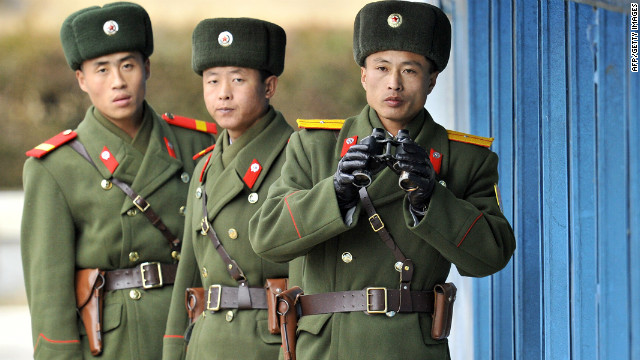North Korean soldier shoots comrades, defects to South
October 6, 2012 -- Updated 1415 GMT (2215 HKT)

North Korean soldiers look at South Korea across the Korean Demilitarized Zone (DMZ).
South Korean soldiers at
their guard posts reported hearing gunfire before he crossed into the
South shortly after noon local time, according to a news release from
South Korea's Joint Chiefs of Staff.
-
Soldiers in the South
took the defector in on their side of the border and brought him to a
safe place for questioning then tightened security in the area.
The North Korean said
that "while he was on guard duty, he killed his platoon and squad
leaders and defected thereafter," the JCS said.
-
Defections over land
through the heavily armed and fortified Demilitarized Zone (DMZ) are
rare, as most fleeing the communist North prefer the greater odds of
success of crossing by sea.
-
"The last North Korean soldier who defected (over land) was in March 2010," said a spokesman from the defense ministry in Seoul.
But with his comrades dead and no longer capable of hindering him, it was easy for the soldier to flee south.
-
"The distance between the
North Korean guard post and the South Korean guard post is 500 meters,"
the official said, who asked not to be named, because he is not
authorized to speak with the media.
More than 24,000 refugees
have entered the South from the North since the country's division,
according to the Ministry of Unification in Seoul, over two-thirds of
them women.
The annual number of refugees has climbed steadily from less than 100 in the 1990s to more than 2,000 per year since 2006.

No comments:
Post a Comment